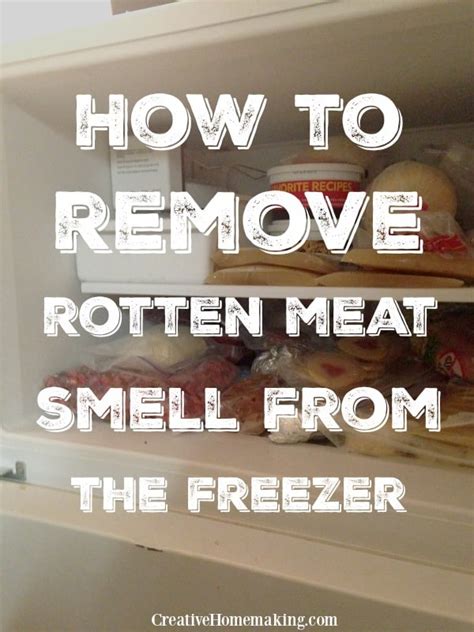Professional Tips for Removing Rotting Meat Smell
The stench of rotting meat is undeniably unpleasant, lingering stubbornly and demanding immediate action. Whether it's a forgotten steak in the fridge, a mishap in the garbage disposal, or a less-than-pleasant discovery under the sink, the pervasive odor requires a multi-pronged approach to eliminate completely. This guide provides professional-level tips to tackle this challenging task effectively and efficiently.
What Causes that Horrific Smell?
Before we dive into solutions, understanding the source of the odor is crucial. Rotting meat releases volatile organic compounds (VOCs), primarily sulfur-containing compounds like hydrogen sulfide, responsible for that characteristically foul smell. These gases permeate porous materials, making removal more difficult. The longer the meat decomposes, the more deeply embedded these VOCs become.
How to Remove Rotting Meat Smell: A Step-by-Step Guide
1. Identify and Remove the Source: This is the most critical step. Locate the source of the odor immediately. Dispose of the rotting meat properly in a sealed garbage bag, taking it outside immediately. Double bagging is recommended.
2. Thorough Cleaning: Once the source is removed, a deep clean is essential. This involves more than just wiping down surfaces.
- For porous surfaces (wood, fabric): These require a more involved process. Try a mixture of baking soda and water (a paste consistency) to absorb odors. Let it sit for several hours, or even overnight, before scrubbing and rinsing thoroughly. For severe cases, consider using an enzymatic cleaner specifically designed to break down organic matter and eliminate odors. These cleaners are available at most home improvement stores.
- For non-porous surfaces (tile, stainless steel): A strong solution of bleach and water (follow manufacturer's instructions carefully) can be effective. Ensure proper ventilation while using bleach. After cleaning, rinse thoroughly and allow the area to air out completely.
3. Neutralizing the Odor: After cleaning, odor-neutralizing agents can help eliminate lingering smells.
- Baking Soda: Place open containers of baking soda throughout the affected area to absorb remaining odors. Baking soda's alkaline nature helps neutralize acidic VOCs.
- Activated Charcoal: Similar to baking soda, activated charcoal is highly porous and excellent at absorbing odors. Place bowls of activated charcoal in the affected area.
- White Vinegar: Vinegar's acidity can help neutralize some of the odor-causing compounds. However, it's less effective than baking soda or activated charcoal. Combine vinegar with baking soda to create a mild fizzing reaction that enhances the odor-absorbing capability.
- Commercial Odor Eliminators: Numerous commercial products are specifically designed to neutralize strong odors, including those from rotting meat. Follow the instructions carefully.
People Also Ask (PAA): Addressing Common Concerns
H2: How long does it take to get rid of the smell of rotting meat?
The time required depends on the severity of the situation and the chosen methods. Minor incidents may be resolved within a few hours to a day. However, more severe cases, especially those involving porous materials, may take several days or even weeks. Patience and persistence are key.
H2: Can I use bleach to get rid of the smell of rotting meat?
Bleach can be effective on non-porous surfaces but is not suitable for porous materials like wood or fabric, as it can damage these surfaces. Always use bleach with caution, following the manufacturer's instructions carefully, and ensuring proper ventilation.
H2: What are the best enzymatic cleaners for rotting meat smell?
Many enzymatic cleaners are available, designed to break down organic matter and eliminate odors. Look for products specifically mentioning odor elimination and suitability for pet stains or organic matter removal. Reading product reviews can also assist in choosing an effective cleaner.
H2: Will airing out the room help remove the smell?
Airing out the room is a crucial step in the process. Open windows and doors to allow fresh air circulation, helping to dissipate the lingering odors. Using fans can accelerate the process.
4. Prevention is Key:
- Proper food storage: Always store meat properly in airtight containers or sealed bags in the refrigerator.
- Regular cleaning: Regular cleaning of your refrigerator and garbage disposal helps prevent the buildup of odors.
- Prompt disposal: Dispose of spoiled food immediately.
By following these professional tips, you can effectively eliminate the unpleasant smell of rotting meat and prevent future occurrences. Remember to prioritize safety and always follow manufacturer’s instructions when using cleaning products.

